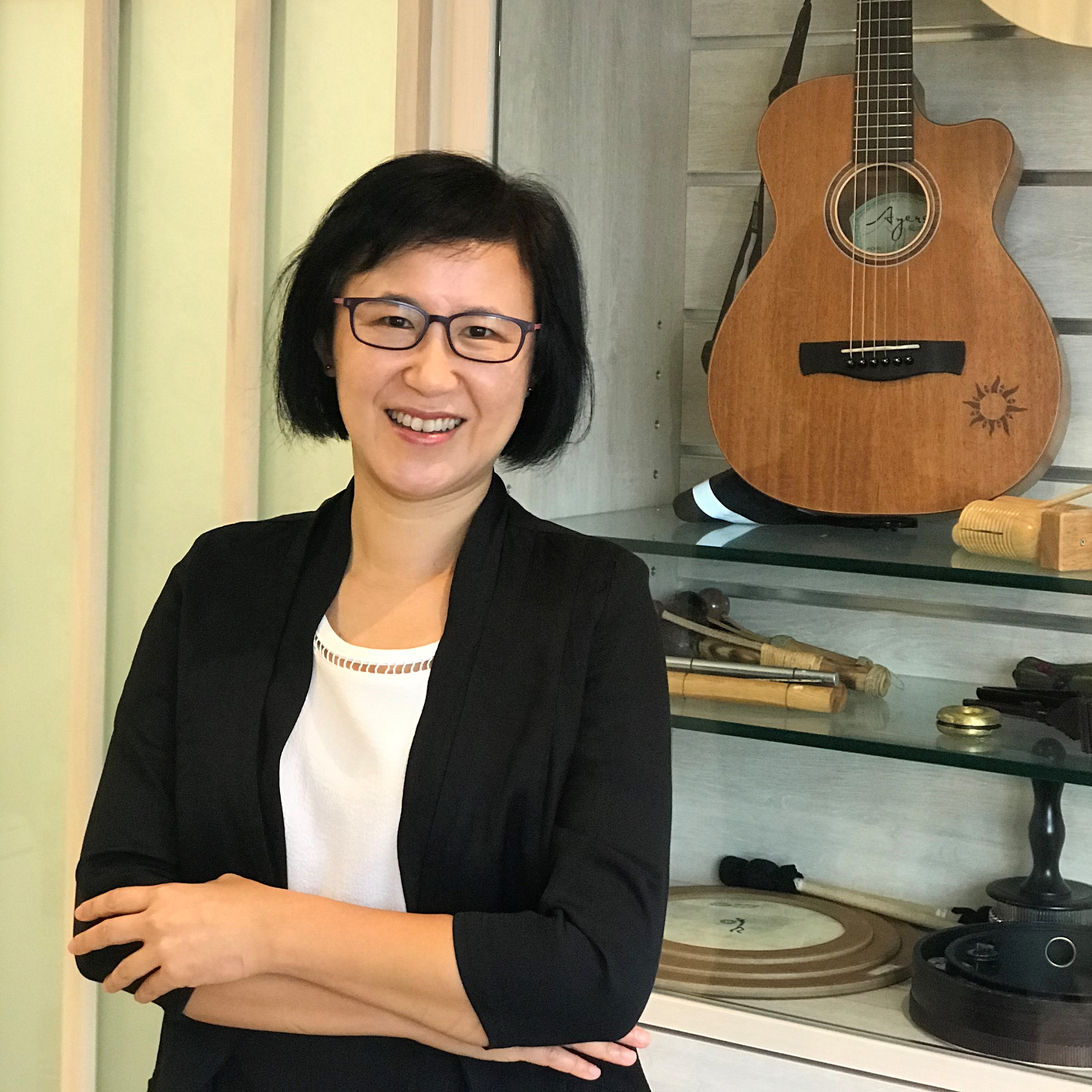Faculty of Nursing alumna uses music therapy to care for clinical nurses
10 September 2020

Angela Shum tested the effectiveness of using a music psychotherapy technique, the Bonny Method of Guided Imagery and Music (GIM), to nurture self-compassion and promote psychological well-being in a nurse. Photo supplied.
Angela Shum was always drawn to nursing for its wide scope of practice and the limitless opportunities that come with the profession. She was accepted into the University of Alberta, Faculty of Nursing as an international student from Hong Kong and became a Canadian citizen in 1999 when her family migrated to Canada.
After graduating, Shum didn’t stay still for long and quickly built up extensive experience working as a Registered Nurse. She worked in different specialties in various health care settings in Vancouver, California, and Hong Kong where she currently works and resides.
“I really enjoyed my ability to relocate to different places easily. The nursing education I received from the University of Alberta equipped me well to move within different specialties of the nursing profession, so I could learn more about building rapport with different clients, serving them not just physically, but also socially and emotionally,” explained Shum.
Shum was working as a clinical instructor at the School of Nursing, Polytechnic University in Hong Kong when she felt the urge to further her education. Shum — who used Music Therapy to cope while working as a nurse during a bereavement period — obtained her Music Therapy education and related working experience abroad, and returned to Hong Kong to work as a mental health nurse at a community-based addiction prevention and treatment center.
She practiced music therapy/expressive arts therapy techniques that resembled some of those described in holistic nursing until her role changed, and she was allowed to only do nursing assessments and psycho-education. This motivated her to create her own company in 2018 called Abundant Wellness, where she combined her passion for nursing and music therapy while caring for nurses working in clinical settings.
Below, Shum explains in-depth her recent research involving the “positive qualitative outcomes of using a music psychotherapy technique, the Bonny Method of Guided Imagery and Music (GIM), to nurture self-compassion and promote psychological well-being in a nurse.”
What does this research entail?
This case research identified positive qualitative changes in reported feelings and behaviours and used a self-compassion scale (SCS) to assess the SCS score of a mental health nurse after receiving a series of GIM sessions. The outcome of the research has shown a 26% increase in the SCS score after the GIM sessions, suggesting an elevation in self-compassion. This elevated SCS score is directly associated with psychological strength, such as satisfaction, optimism and wisdom. GIM greatly enhanced this nurse’s resilience and coping.
How did you become involved in this type of research, specifically surrounding GIM?
I was under intensive training for GIM and was required to do an in-depth project. I decided to observe how GIM sessions could benefit a nurse in her mental and spiritual health. In particular, I aimed to document this case research, hoping to prove that it could reduce burnout and work-related stress in nurses. I found that the SCS was a useful tool for self-assessment and the evaluation of the status of one’s wellness. Amazingly, this project produced a significant difference in SCS after GIM and I was able to show its effectiveness in a person’s psychological well-being.
Why is it so important for nurses to hone self-care skills, especially early on in their careers?
I noticed that many fresh nursing graduates were very tempted to give up working in this profession after the first few years of practice. I think it is important to work happily in our nursing jobs in order to provide the best care to the clients. We learn to self-criticize very quickly in our line of work. In my nursing education, I learned to teach our clients about self-care but was never taught about the need to do that for ourselves in order to maintain a healthy work-life. I think nursing students may be relatively receptive to learning this while still in school because once they are out practicing, it may take a while for them to develop this awareness, and by the time one becomes aware of it, one may already be in a very undesirable psychological state.
Has the pandemic altered the way you and your team currently work?
The general public has become more aware of and more receptive to mental health needs and ways to maintain healthy wellbeing apart from mere physical health. Due to the recommended social distancing practice in many countries and limitations in travelling, telehealth has gradually become a very popular means of communication. This online mode has expanded the horizons of providing healthcare services, not being limited to one place or one city, but worldwide. Therefore, even if I am physically located in Hong Kong, I can still provide online music imagery sessions to clients around the world.
Any plans for the future?
I am thinking about developing a program using music and imagery for wellness, so nurses can learn about this treatment intervention for self-care activity, as well as providing appropriate interventions before referring their clients to music therapy professional services. The ultimate aim is for nurses to optimize desired psychological wellbeing as professional development and learn this wellness practice to better serve their clients, who may immediately benefit from this art-based approach. Meanwhile, I am waiting for the approval of pending research, proposing to test the efficacy of a group-based Focused Music Imagery (FMI) on reducing stress-associated symptoms and promoting coping resources among young adults using randomized controlled trial design.
Interested in learning more about GIM? Watch this video to learn how Focused Music Imagery is safe creative music psychotherapy that can be used for enhancing the self-compassion practice among nursing students to manage work-related stress: https://www.youtube.com/watch?v=NfOPKbWBa2M&feature=youtu.be.